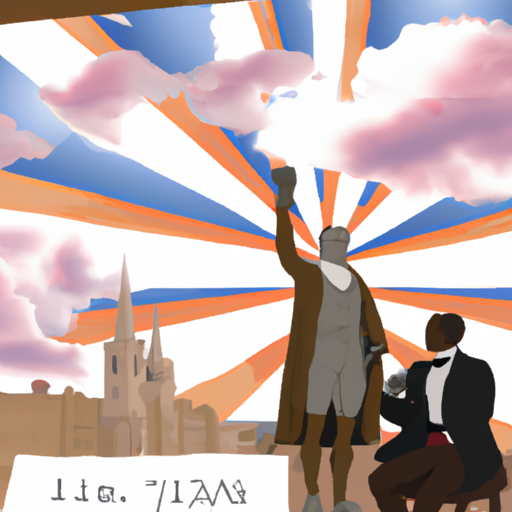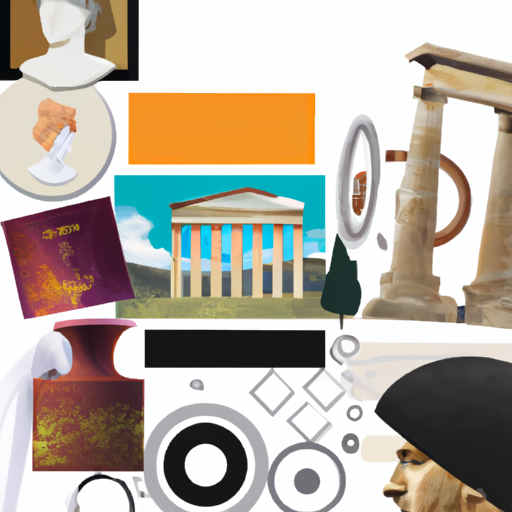History of Jesus’ Real Birthday
Unearth the concealed past of Jesus’ genuine day of birth and unearth its real importance! What could be concealed underneath this mysterious date? Could it hold clues to a greater meaning, or is it just another forgotten holiday? Delve deep into the depths of time and uncover the true significance behind Jesus’ birthday!

For centuries, the story of Jesus’ birth has been shrouded in an aura of enigma. Scholars have delved into the depths of thought to discern the true date and importance of his birth. Is it simply another forgotten holiday, or does it possess a greater significance? To unravel this mystery, one must look back to the dawning days of Christianity.
The first known commemoration of Jesus’ birth was during Constantine I’s rule in 336 AD. This momentous event in early Christian history marked the beginning of Christmas as we know it today. Since then, numerous theories have been advanced regarding when Jesus was born—some say December 25th while others contend that he arrived in spring or summertime.
One thing is certain: Jesus’ birthday serves as a reminder that God sent His son to redeem us from our sins and provide us with everlasting life via his death on the cross. It also reminds us that despite our differences, we are all part of one family bound together by faith in Christ.
By exploring the true history behind Jesus’ birthday, we can gain insight into its real significance and how it pertains to our lives now. Through this journey, we can come to understand why this day remains so essential to Christians everywhere—and why it should be celebrated for years to come.
.
Introduction

The exact date of Jesus’ birth has long been a source of puzzlement, with the Bible offering no definitive answer. Although December 25th is traditionally associated with his nativity, it is not necessarily the accurate day. Historians and astronomers have tried to establish an approximate time frame for his entrance into the world, hypothesizing that it may have occurred between 6 BC and 4 BC.
– Historical Evidence for Jesus’ Real Birthday
The annals of antiquity are scarce in terms of tangible evidence for the actual day Jesus was born. Despite this, some clues have been unearthed. The most widely accepted belief is that His birth occurred on December 25th, a date chosen by the church’s early leaders during the fourth century AD. This likely coincided with pagan festivities celebrating winter solstice and other religious events. Additionally, there are indications that He may have made His entrance into the world around April 17th or 19th, based on astronomical data and Jewish holiday observances such as Passover. Still, these dates remain open to interpretation and the true day of Jesus’ birth remains an enigma shrouded in history’s veil.
– The History of Celebrating Jesus’ Birthday
For centuries, a festival on the 25th of December has been observed, commemorating the birth of Jesus Christ. In the 4th century, this celebration began to become more widespread and by the 6th century it was officially recognized as a church holiday. An anonymous work from 243 AD, De Pascha Computus, is believed to be the earliest reference to this event.
In Europe during the Middle Ages, Christmas was observed in churches with Masses and processions. By the 16th century it had become a widely celebrated holiday with feasting and gift-giving. King Henry VIII declared it a national holiday in England in 1536.
The Puritans were not fond of Christmas celebrations as they thought them too pagan-like, making it unpopular in North America during colonial times. It wasn’t until Queen Victoria’s reign that Christmas began to be embraced as a secular holiday in both Britain and America.
Today, people around the world honor Jesus’ birth on December 25th with caroling, gift-exchanging, feasting and light displays – though traditions vary from place to place. It is seen as a joyful time for reflection on his teachings.
– How Early Christians Honored the Birth of Jesus
In a time long ago, Christians of days past paid homage to the birth of Jesus in a variety of ways. It is said that the first Christmas celebration was held in Rome in 336 A.D., during the rule of Constantine, who declared Christianity as the official religion of the Roman Empire.
Traditional observances and prayerful reflection were at the forefront of early Christian celebrations. Beginning with a midnight mass on Christmas Eve, followed by a procession to Bethlehem, prayers and hymns filled the night air as people gathered around bonfires for warmth and light.
Roasted lamb and honey cakes were partaken in special meals symbolic of Jesus’ sacrifice and resurrection respectively. On Christmas Day, services featuring readings from scripture about Christ’s birth were held at churches across Europe. Greenery such as holly and ivy adorned homes to symbolize eternal life while evergreen trees were used as decorations or placed outside churches to signify that Christ was alive in nature.
Christmas customs have evolved over time but paying tribute to Jesus’ birth remains an integral part of celebrating his life even today – from attending church services on Christmas Eve to exchanging gifts with loved ones on Christmas morning.
– Examining Ancient Records to Determine Jesus’ Birth Date
Delving into the past to try and pinpoint when Jesus was born has been a pursuit of many historians over the years. Uncovering documents, artifacts, and other evidence related to Jesus’ life is an essential part of comprehending his legacy and the development of early Christianity. Scholars have used a combination of historical accounts and archaeological finds to attempt to establish when Jesus was born. The most widespread theory is that he arrived in Bethlehem around 4 BCE.
Tacitus, a Roman historian, wrote about Jesus’ birth in his Annals around 116 CE, which suggests that it happened during Augustus Caesar’s reign between 27 BCE and 14 CE. Josephus also referred to Jesus’ birth in his Antiquities of the Jews written around 93-94 CE, reinforcing the same timeline.
In addition, archaeological discoveries have provided more precise details regarding Jesus’ birth date. Coins from 4 BCE were unearthed with inscriptions referencing Herod’s rule in Judea; this could be interpreted as signifying that Jesus was born at this time since Herod died shortly afterwards. Moreover, there are several tombs with artifacts dating back to 4 BCE which may signify when Jesus began his ministry.
Despite conflicting sources and lack of conclusive evidence, exploring ancient records still offers valuable insight into understanding Jesus’ life and its influence on Christianity today.
– Exploring the History of Christmas and its Connection to Jesus’ Birthday
A mysterious and exciting journey through time, Christmas has been celebrated for centuries. Though its exact origin is unknown, it is thought to have been a pagan festival in ancient Rome that was later adopted by the Christian church in the 4th century. It is believed that this date was picked to coincide with existing winter festivities like Saturnalia and Sol Invictus. Additionally, some historians posit that the holiday may have been influenced by Jewish traditions such as Hanukkah or Sukkot.
From decorations and gift-giving to Santa Claus and Elija (the prophet from Judaism), there are many similarities between these holidays which are now commonplace during Christmas celebrations around the world. Whether you celebrate it for religious reasons or simply for fun, exploring the history behind this holiday can help us appreciate its significance even more!
conclusion

The precise date of Jesus’ emergence into the world is a mystery, lost to antiquity. But, if we look to ancient records, the most commonly accepted period of his birth is December 25th, when the early Church adopted and adapted pagan festivities for their own spiritual purposes.
.
Some questions with answers
Q1. When was Jesus real birthday?
A1. The exact date of Jesus’ birth is not known, but most scholars believe it was around 6 or 7 B.C.
Q2. What is the history behind Jesus’ real birthday?
A2. According to the Bible, Jesus was born in Bethlehem during the reign of King Herod the Great. It is believed that he was born sometime between 6 and 4 B.C.
Q3. How did people celebrate Jesus’ birthday in ancient times?
A3. In ancient times, people celebrated the birth of Jesus by giving gifts to those in need and by attending religious services.
Q4. Who first proposed celebrating Jesus’ birthday?
A4. The earliest written record of a celebration of Jesus’s birthday comes from a Roman historian named Sextus Julius Africanus who wrote about it in 221 A.D.
Q5. What do Christians celebrate on Jesus’ birthday?
A5. Christians celebrate the birth of Jesus on Christmas Day (December 25th) as a way to remember his life and teachings, as well as to give thanks for his sacrifice on their behalf.




